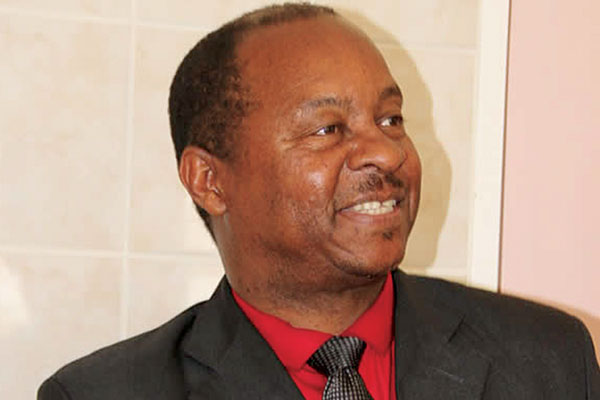
BY STAFF REPORTERS/OWN CORRESPONDENTS
CABINET has approved a proposed law to effectively ban all forms of industrial action by workers in the health sector after classifying them as an essential service, together with the police and military.
This came as doctors at major public hospitals downed tools yesterday after rejecting a 60% pay rise offered by their employer, saying it was a “pittance”.
The latest strike, the fourth since President Emmerson Mnangagwa came into office nearly 18 months ago, has crippled most hospital operations, with skeletal staff reporting for duty at major referral centres — Harare, Parirenyatwa and Mpilo hospitals — yesterday.
The doctors have vowed to continue with the industrial action until government tables a “better salary offer”.
Addressing a post-Cabinet Press briefing yesterday, Information minister Monica Mutsvangwa said the Executive arm of the State had approved principles of the Health Services Amendment Bill that were presented by Health minister Obadiah Moyo.
“Highlights of the amendments include the following: To designate the Health Services Board (HSB) as a Health Service Commission, to provide for the functions of the Health Service Commission and its administration, to incorporate the basic values and principles governing the administration and financial management in the Act, to designate health service as an essential service and emergency critical care as essential services that should be provided for at all times,” she said.
Moyo said once the proposed law was approved, health workers would just be allowed to picket at their employer’s offices for a few hours and not go on strike indefinitely.
- Chamisa under fire over US$120K donation
- Mavhunga puts DeMbare into Chibuku quarterfinals
- Pension funds bet on Cabora Bassa oilfields
- Councils defy govt fire tender directive
Keep Reading
“We are in a democratic country where people are allowed to voice their concerns, but if you are part of an essential service, you must show your respect, especially the health personnel. You should show respect for those you are looking after. You are dealing with lives and, therefore, you should show that you have gone through thorough training and part of that training should have made you understand that you are there to save lives,” Moyo said.
He accused the striking doctors of acting in bad faith by embarking on industrial action after signing for a 60% pay rise deal with the HSB.
Moyo said so far, only junior doctors had downed tools, while their seniors countrywide reported for duty.
In a survey by NewsDay in Harare yesterday, a few doctors, particularly seniors, had reported for duty, with prospects of joining the strike today.
“The 60% increment is an insult. I cannot do anything with it. As it is, I have run out of fuel. How can my employer expect me to come to work tomorrow? I will definitely fail to come to work tomorrow (today). I am incapacitated,” a senior doctor at Parirenyatwa, who preferred anonymity, said.
The few doctors who reported for duty were reportedly on go-slow.
Efforts to get a comment from the officials at Harare Central Hospital were fruitless as top officials were not forthcoming.
A patient at Harare Central Hospital, Sharon Mhuriyengwe, in the afternoon said she had not been attended to since morning as doctors were few and rather slow.
Only 15 junior doctors out of 57 reported for duty at Bulawayo’s Mpilo Central Hospital.
“Only 15 junior doctors came to work out of 57 doctors. We will continue to give service with the staff we have, although we will have shortfalls in some of the departments,” Mpilo clinical director Solwayo Ngwenya yesterday.
United Bulawayo Hospitals’ chief executive Nonhlanhla Ndlovu was not reachable for comment, but sources said most of the doctors at the institution were not at work.
In Gweru, Mutare and Masvingo, doctors were still attending to patients despite the call to strike.
Midlands provincial medical director Solomon Nyadungu said: “All is well for now. The doctors are carrying out their duties.”
Former Health minister Henry Madzorera, in a statement yesterday, urged government to urgently address doctors’ concerns to avoid unnecessary loss of lives.
“The illegitimate regime has unilaterally withdrawn the right to life and the right to health from the people both through its acts of commission and omission. The incapacitation of doctors nationwide is a serious infringement on the people’s constitutional right to healthcare,” he said.
Madzorera said the poor were the most affected by the doctors’ strike and shortage of drugs as top government officials always sought treatment abroad.
“Even the most basic medicines and supplies are always out of stock in spite of government’s incessant claims that stocks of medicines were on their way, while acutely haemorrhaging accident victims are being told to go and buy their own suture material and intravenous fluids at private pharmacies many kilometres away, before they can be helped,” he said.
“A soft genocide is looming if we don’t act now to avert the crisis. We further urge the regime to pro-actively address nurses’ and other health workers’ issues before further disaster strikes.”











